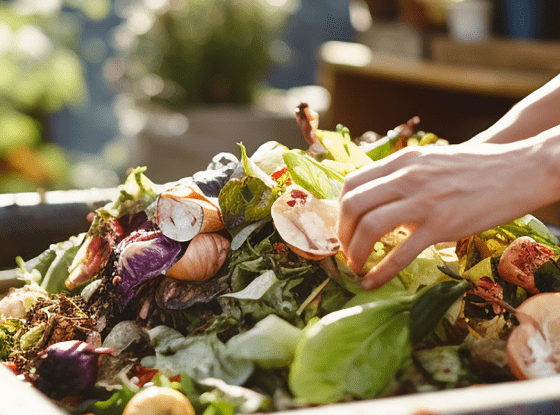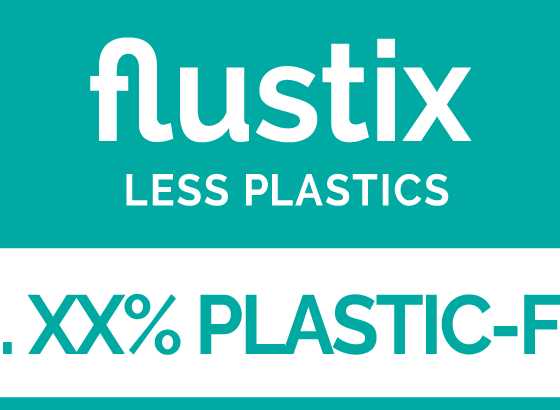ATTITUDE WITH BISS
The EU Commission has launched a strengthening of the Packaging Regulation. A really big thing, bold and ambitious. The central innovations:
- The proportion of primary raw materials in packaging material is to be drastically reduced and replaced by recyclates. Very good!
- The greenwashing with so-called bioplastics should be stopped, and the production and labeling of bio-based plastics clearly regulated. Very good!
- In the future, with Europe-wide uniform labels, consumers should be able to see at first glance, what the packaging material is made of – and how it is disposed of. Also very good!
So everything is fine? Unfortunately, it is not that simple. Because in practice, years will pass until the new specifications can be implemented. I’m particularly curious about the standardized labeling of recycling streams throughout Europe. So far, each country has gone its own way, using different collection systems and recycling technologies. If you compare Germany with Portugal, for example, we are worlds apart: Portugal’s recycling rate is disastrous. Deposits are by no means taken back everywhere. Due to the ludicrous disposal fees, a large part of the waste is still disposed of in landfills – unsorted. How should there be a yogurt cup that is disposed of in Lisbon just the same way as in Berlin?
Read more about the new regulation here.
But we don’t even have to look as far as Portugal to see that we are a long way from uniformity. Even within Germany, there are different approaches to recycling. Whereas in Hamburg recyclables have been collected in yellow bags or garbage cans since the mid-1990s, people in Munich still have to take their recycling waste to one of 950 so-called recycling islands. Result: People from cities with yellow garbage cans collect four to six times as much plastic and packaging waste as they do in Munich. Absurd, right?
But I do not want to rip the plans of the EU Commission because of it, on the contrary. Just because it is difficult, we can not leave the problems unsolved. And that is precisely what – despite the war, climate and energy crises – is a positive insight for me to take away from 2022: We are not only making great, but also quite concrete progress in terms of sustainability.
This happens less on the big stages, as we had to experience again at the last climate summit in Sharm El Sheikh with its disappointing results. Instead, it happens in real life, in business, in everyday life. We at flustix have identified three trends that give hope for 2023.
1. Sustainability remains the ultimate mega trend
Sustainability has arrived at the center of society. This has an impact on business: in almost all the companies we talk to about using recyclates and optimizing the recyclability of materials, I see the real effort and a willingness to make consistent changes. Studies confirm our experience: According to the CMO-Barometer 2023, an important indicator for major brands, sustainability remains the most important mega-trend. This affects all areas.
2. The loopholes are shrinking dramatically
While heads of state are struggling, operationally the transformation is already in full swing – thanks to the engagement and a marked increase in awareness of the impact of our actions. NGOs are bold and vigilant, consumers are exercising their market power – and now legislators and the judiciary are following suit. Greenwashing is being punished more frequently. As recently as November, the prominent detergent and cleaning agent manufacturer Sonett suffered a severe defeat in court. The Higher Regional Court of Frankfurt prohibited advertising with the slogan “climate-neutral company”. The background to this was that the company only had parts of the value chain assessed. What happens on the way to the factory and after delivery played no role in the certification by the recently much-criticized ClimatePartner GmbH. Produce elsewhere for cheap and opaque, then make it climate-neutral here at the POS – and done, is a phased-out model.
Greenwashing accusations against Adidas: It’s about the German World Cup jersey
3. We are experiencing a flood of innovations
This realization gives me particular pleasure: we are experiencing a flood of innovations that actually have an impact. New reusable solutions, plastic-free raw materials as the basis for plastics, and improved recycling techniques – the climate crisis is driving our inventive and pioneering spirit. We expect groundbreaking innovations already in 2023, especially in the food sector. Instead of costly and difficult-to-dispose-of multi-component packaging, we will soon be using new materials: In the frozen food sector just like in the refrigerated counter, where currently even the small spread and salad bowls consist of up to four different materials.
With these positive trends, we would like to say goodbye to this difficult year and start the new 2023 full of energy. We look with excitement straight into the first quarter: then the EU Commission brings the proposals for the Green Claiming Regulation on the road. This will be the next milestone for greenwashing avoidance and an accelerator for the transformation, in which we are all now already well on track.
Enjoy the holiday season. Best wishes for the moving and promising 2023.
Sincerely,
Malte Biss
 English
English Deutsch
Deutsch




